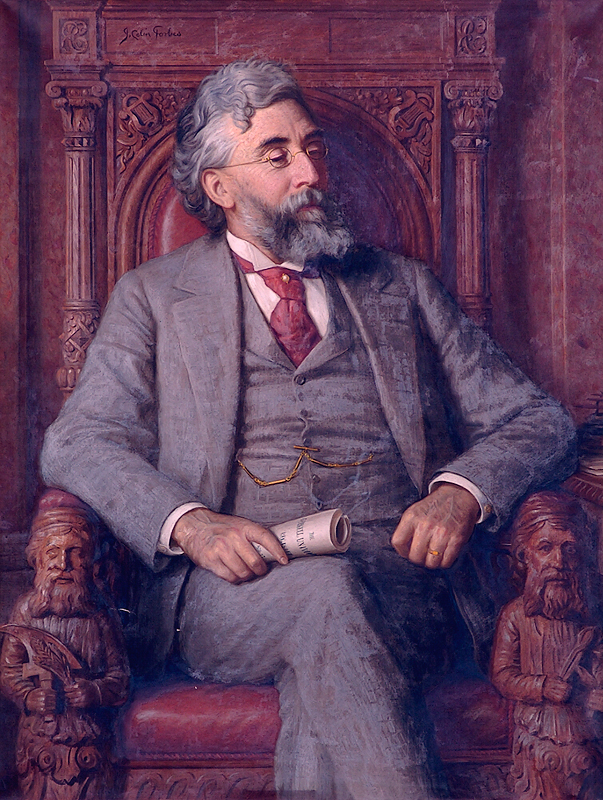

University of Wisconsin President Charles Kendall Adams and economics Professor Richard T. Ely (Wikipedia)
Sifting and winnowing is a metaphor for the academic pursuit of truth associated with the University of Wisconsin–Madison, coined by University President Charles Kendall Adams.
Professor Richard T. Ely was known to be liberal and pro-union, having published a book on socialism. In 1894 Superintendent of Public Instruction Oliver Wells protested Ely's socialist beliefs, teaching, and public speaking to President Adams and the Board of Regents.1
Unsatisfied by their response, Wells wrote an inflammatory letter to The Nation entitled "The College Anarchist," stating that Ely "believes in strikes and boycotts, justifying and encouraging the one while practicing the other" and that he was "an individual who can say to citizens and taxpayers, "Stand and deliver, or down goes your business," and to the laboring men, "Join the union or starve with your families." 2
The Board of Regents appointed a committee to investigate the charges. President Adams, who reviewed Ely's Socialism for the committee, reported that "From the beginning to the end of the book there is not a paragraph or a sentence that can be interpreted as an encouragement of lawlessness or disorder."
A final report by the University of Wisconsin exonerated Professor Ely of the charges. It states
As Regents of a university with over a hundred instructors supported by nearly two millions of people who hold a vast diversity of views regarding the great questions which at present agitate the human mind, we could not for a moment think of recommending the dismissal or even the criticism of a teacher even if some of his opinions should, in some quarters, be regarded as visionary.
Such a course would be equivalent to saying that no professor should teach anything which is not accepted by everybody as true. This would cut our curriculum down to very small proportions. We cannot for a moment believe that knowledge has reached its final goal, or that the present condition of society is perfect.
We must therefore welcome from our teachers such discussions as shall suggest the means and prepare the way by which knowledge may be extended, present evils be removed and others prevented. We feel that we would be unworthy of the position we hold if we did not believe in progress in all departments of knowledge.
In all lines of academic investigation it is of the utmost importance that the investigator should be absolutely free to follow the indications of truth wherever they may lead. Whatever may be the limitations which trammel inquiry elsewhere we believe the great state University of Wisconsin should ever encourage that continual and fearless sifting and winnowing by which alone the truth can be found.1


The Wheat Sifters, Gustave Courbet, 1854 and Winnowing Grain, Eastman Johnson, 1873-1879.
Sifting sorts by size, while winnowing sorts by weight.
1 "Sifting and winnowing," Wikipedia, retrieved 01/12/18
2 "Sifting and Winnowing," Theodore Herfurth, University of Wisconsin General Library System and the State Historical Society of Wisconsin, 1949
No comments:
Post a Comment